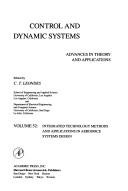| Listing 1 - 10 of 338 | << page >> |
Sort by
|
Book
Year: 2021 Publisher: Bielefeld : Transcript Verlag,
Abstract | Keywords | Export | Availability | Bookmark
 Loading...
Loading...Choose an application
- Reference Manager
- EndNote
- RefWorks (Direct export to RefWorks)
Wie lesen und deuten wir die Welt, in der wir leben? Wer ist der Mensch als Gegenüber von Natur und Technik? Welcher Unterschied liegt in den Selbstzuschreibungen »religiös« oder »gläubig«? Mit der Akteur-Netzwerk-Theorie und einer Auflösung der klassischen Gegenüberstellung von Natur und Kultur ist das Denken Bruno Latours zu einer gefragten Ressource in gegenwärtigen Debatten geworden. Die Beiträger*innen des Bandes gehen seinem Anspruch nach, eine »symmetrische« Anthropologie zu entwerfen, in der Materiellem ein mitentscheidender Platz für die Wert- und Urteilsbildung zukommt - denn dieses Denken gibt auch der Theologie wertvolle Impulse.
Book
Year: 2015 Publisher: Lüneburg : meson press,
Abstract | Keywords | Export | Availability | Bookmark
 Loading...
Loading...Choose an application
- Reference Manager
- EndNote
- RefWorks (Direct export to RefWorks)
Wie und wo entsteht kulturwissenschaftliches Wissen? Im Kopf? In der Bibliothek? Am Schreibtisch? Inspiriert von den Laborstudien der Science & Technology Studies ging das Autor*innen-Kollektiv des vorliegenden Buchs diesen Fragen nach. Aufgesucht wurden die persönlichen Schreiborte von Kulturwissenschaftler*innen verschiedener Disziplinen. In ihren Beiträgen eröffnen die Autor*innen vielfältige Perspektiven auf bislang kaum erforschte Praktiken kulturwissenschaftlicher Wissensproduktion. Hierdurch wird ein komplexes Zusammenspiel technisch-materieller, praktischer, medialer, sozialer, institutioneller, ökonomischer, politischer und ideeller Dimensionen in den Werkstätten kulturwissenschaftlichen Forschens freigelegt. Die Ergebnisse der interdisziplinär angelegten und kollaborativ erarbeiteten Studien liefern überraschende Einsichten und eröffnen weiterführende Forschungsfragen: ein Plädoyer für eine reflexive, kollaborativ-interdisziplinäre Wissenschaftspraxis.
Book
ISBN: 0128054492 0128053046 9780128054499 9780128053041 Year: 2016 Publisher: Amsterdam, Netherlands : Morgan Kaufmann,
Abstract | Keywords | Export | Availability | Bookmark
 Loading...
Loading...Choose an application
- Reference Manager
- EndNote
- RefWorks (Direct export to RefWorks)
Systems Analysis and Synthesis: Bridging Computer Science and Information Technology presents several new graph-theoretical methods that relate system design to core computer science concepts, and enable correct systems to be synthesized from specifications. Based on material refined in the author’s university courses, the book has immediate applicability for working system engineers or recent graduates who understand computer technology, but have the unfamiliar task of applying their knowledge to a real business problem. Starting with a comparison of synthesis and analysis, the book explains the fundamental building blocks of systems-atoms and events-and takes a graph-theoretical approach to database design to encourage a well-designed schema. The author explains how database systems work-useful both when working with a commercial database management system and when hand-crafting data structures-and how events control the way data flows through a system. Later chapters deal with system dynamics and modelling, rule-based systems, user psychology, and project management, to round out readers’ ability to understand and solve business problems. Bridges computer science theory with practical business problems to lead readers from requirements to a working system without error or backtracking Explains use-definition analysis to derive process graphs and avoid large-scale designs that don’t quite work Demonstrates functional dependency graphs to allow databases to be designed without painful iteration Includes chapters on system dynamics and modeling, rule-based systems, user psychology, and project management
System analysis. --- Network analysis --- Network science --- Network theory --- Systems analysis --- System theory --- Mathematical optimization
Book
ISBN: 3030771695 3030771687 Year: 2022 Publisher: Cham, Switzerland : Springer,
Abstract | Keywords | Export | Availability | Bookmark
 Loading...
Loading...Choose an application
- Reference Manager
- EndNote
- RefWorks (Direct export to RefWorks)
System analysis --- Mathematics. --- Network analysis --- Network science --- Network theory --- Systems analysis --- System theory --- Mathematical optimization
Book
ISBN: 1003848362 1003848370 Year: 2024 Publisher: Abingdon, England : Routledge,
Abstract | Keywords | Export | Availability | Bookmark
 Loading...
Loading...Choose an application
- Reference Manager
- EndNote
- RefWorks (Direct export to RefWorks)
Education and state --- Critical pedagogy --- Actor-network theory. --- Research. --- Política educativa --- Pedagogia crítica --- Investigació educativa
Book
ISBN: 1281904767 9786611904760 3764383739 3764383720 Year: 2008 Publisher: Basel ; Boston : Birkhäuser,
Abstract | Keywords | Export | Availability | Bookmark
 Loading...
Loading...Choose an application
- Reference Manager
- EndNote
- RefWorks (Direct export to RefWorks)
The network paradigm dominated immunological research from the early 1970's to the late 1980's. The originator, Niels Jerne, hypothesized that the vast diversity of antibodies in each individual forms a network of mutual "idiotypic" recognition, thus regulating the immune system. In context of emerging concepts of systems biology such as cybernetics and autopoesis, the "Eigenbehavior" of the immune system fascinated an entire generation of young immunologists. But fascination led to experimental errors and overinterpretation, eventually magnifying the immune system from a mere infection-fighting device to a substrate of personality and individuality. As a result, what initially appeared as an exciting new perspective of the immune system is now viewed as a scientific vagary, and is largely abandoned. The author, himself a participant in the network vagary, begins with a description of the leading theoretical concepts on fact finding in science. This is followed by a historical account of the rise and fall of the network paradigm, complemented by personal interviews with some of the prominent protagonists. By comparing the network paradigm to other, more lasting concepts in life science, the author develops a general perspective on how solid knowledge is derived from error-prone scientific methodology, namely by exposure of scientific notions to the scrutiny of reality.
Idiotypic networks. --- Immune system --- Research --- History. --- Immunological system --- Anatomy --- Immunology --- Idiotype immune networks --- Idiotype networks --- Idiotypic immune networks --- Immune network theory --- Network theory (Immunology) --- Biological control systems --- Anti-idiotypic antibodies --- Life sciences. --- Life Sciences, general. --- Biosciences --- Sciences, Life --- Science
Book
ISBN: 3839457211 9783839457214 9783837657210 Year: 2021 Publisher: Bielefeld
Abstract | Keywords | Export | Availability | Bookmark
 Loading...
Loading...Choose an application
- Reference Manager
- EndNote
- RefWorks (Direct export to RefWorks)
Numerous contemporary televisual productions revisit the past but direct their energies towards history's non-events and anti-heroic subjectivities. Debarchana Baruah offers a vocabulary to discuss these, using Mad Men as a primary case study and supplementing the analysis with other examples from the US and around the world. She takes a fundamentally interdisciplinary approach to studying film and television, drawing from history, memory, and nostalgia discourses, and layering them with theories of intertextuality, paratexts, and actor-networks. The book's compositions style invites discussions from scholars of various fields, as well as those who are simply fans of history or of Mad Men. Besprochen in: https://lpcm.hypotheses.org, 4 (2021)
Book
ISBN: 9780127595504 0127595503 9786613838353 1283525909 008095586X 9780080955865 9781283525909 6613838357 Year: 1971 Volume: 78 Publisher: New York Academic Press
Abstract | Keywords | Export | Availability | Bookmark
 Loading...
Loading...Choose an application
- Reference Manager
- EndNote
- RefWorks (Direct export to RefWorks)
In this book, we study theoretical and practical aspects of computing methods for mathematical modelling of nonlinear systems. A number of computing techniques are considered, such as methods of operator approximation with any given accuracy; operator interpolation techniques including a non-Lagrange interpolation; methods of system representation subject to constraints associated with concepts of causality, memory and stationarity; methods of system representation with an accuracy that is the best within a given class of models; methods of covariance matrix estimation;methods for low-rank
System analysis. --- Analyse de systèmes --- System Analysis --- Network analysis --- Network science --- Network theory --- Systems analysis --- System theory --- Mathematical optimization

ISBN: 1280707429 9786610707423 0080466028 0080449670 9780080449678 9780080466026 Year: 2006 Publisher: Boston, MA : Elsevier,
Abstract | Keywords | Export | Availability | Bookmark
 Loading...
Loading...Choose an application
- Reference Manager
- EndNote
- RefWorks (Direct export to RefWorks)
The Integrated Water Resources Management (IWRM) paradigm has been worldwide recognized as the only feasible way currently available to ensure a sustainable perspective in planning and managing water resource systems. It is the inspiring principle of the Water Framework Directive, adopted by the European Union in 2000, as well as the main reference for all the water related activity of UNESCO in the third world countries. However, very often, real world attempts of implementing IWRM fail for the lack of a systematic approach and the inadequacy of tools and techniques adopted to address the int
Water-supply --- System analysis. --- Management. --- Network analysis --- Network science --- Network theory --- Systems analysis --- System theory --- Mathematical optimization

ISBN: 0120127520 032316319X 9780120127528 Year: 1992 Volume: 52 Publisher: San Diego Academic Press
Abstract | Keywords | Export | Availability | Bookmark
 Loading...
Loading...Choose an application
- Reference Manager
- EndNote
- RefWorks (Direct export to RefWorks)
Control and Dynamic Systems V52: Integrated Technology Methods and Applications in Aerospace Systems Design
System analysis. --- Airplanes --- Network analysis --- Network science --- Network theory --- Systems analysis --- System theory --- Mathematical optimization --- Design and construction.
| Listing 1 - 10 of 338 | << page >> |
Sort by
|

 Search
Search Feedback
Feedback About UniCat
About UniCat  Help
Help News
News